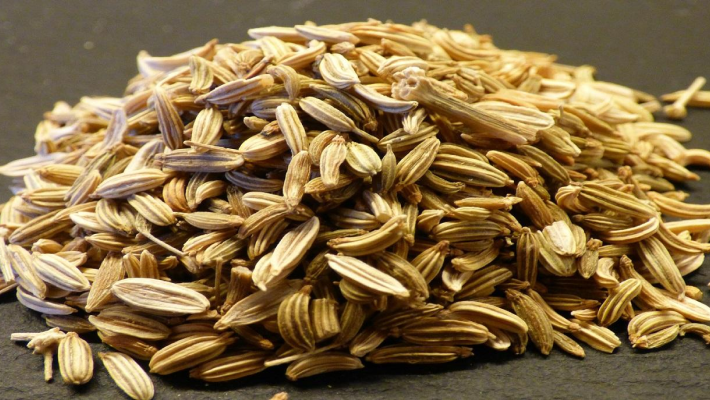Annual Herbs
- €4,95
Organic Basil Seeds for Culinary and Garden UseDiscover organic basil seeds from the Ocimum basilicum variety, perfect for enriching your herb garden with vibrant purple basil. These anise-flavored basil seeds offer a unique taste profile,...
- €4,95
Premium Organic Basil Seeds for Culinary UseDiscover the vibrant flavor of organic basil seeds from the classic Italiano variety, perfect for enhancing your kitchen garden. These Ocimum basilicum seeds are ideal for cultivating fresh basil...
- €4,95
Aromatic organic chamomile seeds for tea gardensCreate a fragrant herb corner with organic chamomile seeds, a classic choice for anyone who loves soft, daisy-like blossoms and delicate scent. These organic chamomile seeds for planting come...
- €4,95
Organic Chervil Seeds for Culinary Herb GardensDiscover the fresh, delicate flavor of organic chervil seeds (Anthriscus cerefolium) Fine Curl, perfect for enhancing a variety of dishes. This fine curly chervil variety produces tender leaves prized...
- €4,95
Organic Coriander Seeds for Culinary Herb GardensDiscover the versatility of organic coriander seeds (Coriandrum sativum), an essential addition to any herb garden. This annual herb reaches up to 60 cm in height and thrives both...
- €4,95
Organic cucumber herb seeds for fresh saladsDiscover the versatility of organic cucumber herb seeds from Borago officinalis, an easy-to-grow herb perfect for enhancing your garden. This annual herb reaches up to 50 cm in height...
- €4,95
Organic curly parsley seeds with dark green leavesDiscover the vibrant flavor of organic curly parsley seeds from Petroselinum crispum, perfect for enriching your vegetable garden herbs and culinary creations. These seeds produce low-growing, aromatic parsley...
- €4,95
Organic dill herb with tall yellow flower umbelsBring fresh, aromatic flavour to your kitchen garden with organic dill seeds of the classic herb Anethum graveolens. This annual dill herb variety forms slender, airy plants that...
- €4,95
Organic Lemon Basil Seeds with Aromatic FlavorDiscover the vibrant taste of organic lemon basil seeds, known for their distinctive lemon flavor and delightful aroma. This culinary basil variety, scientifically named Ocimum basilicum var. citriodorum, produces...
- €4,95
Flavorful Organic Parsley Seeds Italian VarietyDiscover the rich aroma and distinctive taste of organic parsley seeds from the renowned Italian variety, Petroselinum crispum Gigante D’Italia. This flat-leaf parsley stands out in herb gardens with its...
- €4,95
Vibrant Organic Red Rubin Basil SeedsOrganic Red Rubin Basil Seeds offer a striking addition to any herb garden with their deep purple leaves and aromatic presence. Known botanically as Ocimum basilicum, this culinary basil variety...
- €10,95
Spicy organic sprouting mustard cress seeds indoorsBring vibrant flavor to your kitchen with organic sprouting mustard cress. These Organic Sprouting Mustard Cress Sinapis alba Seeds 250g are ideal for producing crisp, spicy mustard cress sprouts...
- €4,95
Curly dark green parsley seeds for plantingBring classic kitchen garden flavor to your home with these parsley seeds Thujade, a compact, dark green curly variety of Petroselinum crispum. Ideal for cooks and gardeners alike, these...
- €4,95
Compact dark green parsley seeds for cookingBring fresh flavour to your dishes with these parsley seeds Thujade dark green, a reliable Petroselinum crispum herb variety for any kitchen garden. This dark green parsley variety forms...
- €4,95
Premium Pelleted Peppermint Seeds for Herb GardensDiscover the ease of growing peppermint seeds with these pelleted herb seeds of Mentha x piperita. Designed for both indoor seed trays and outdoor herb planting, these mint seed...
- €4,95
Distinctive Purple Ruffles Basil Seeds for GardensDiscover the vibrant charm of purple ruffles basil seeds, a unique variety of Ocimum basilicum prized for its striking dark purple, serrated leaves. This ornamental herb plant adds both...
- €4,95
Discover Purple Shiso Seeds for Culinary UsePurple Shiso Seeds from Perilla frutescens offer a unique addition to any herb garden with their vibrant purple leaves and aromatic flavor profile. This Japanese culinary herb, also known...
- €4,95
Highly Aromatic Red Basil Seeds for Culinary UseDiscover the vibrant flavor of Red Basil Seeds from the aromatic Ocimum basilicum Red Lizzy variety. This purple basil offers a more intense aroma compared to traditional green...
- €4,95
Red Basil Seeds for Culinary Mediterranean Herb GardensDiscover the vibrant flavor and ornamental appeal of Red Basil Seeds, derived from the Ocimum basilicum purpurascens variety. Known as dark opal basil, this annual basil variety features...
- €4,95
Distinctive Red Basil Seeds for Culinary and Ornamental UseDiscover the vibrant appeal of red basil seeds from the Ocimum basilicum purpurascens variety, known as Dark Opal. This spicy basil variety features striking purple leaves that...


































































